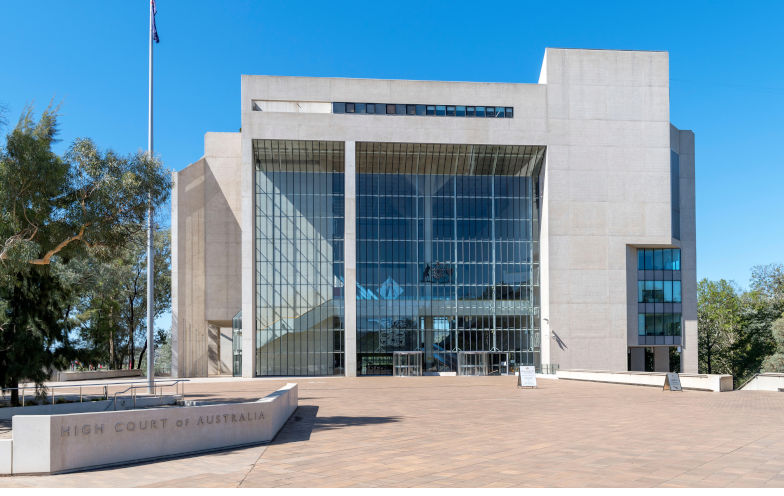Inside out: powerful advocates have judges' ears
November 30, 2024
The ACT Supreme Court was the scene of two uniquely powerful demonstrations of advocacy on the one evening last week.
Justice Chrissa Loukas-Karlsson was presiding, with Chief Justice Lucy McCallum swapping her usual role of judge for that of examiner, before a gallery including Justice Louise Taylor, Acting Justices Rebecca Christensen and Richard Refshauge, and Coroner Ken Archer.
The two advocates were not experienced local barristers, nor big, swinging silks blowing in from Sydney.
Jeremiah Deakin and Josephine Timbrell are graduates of the Lived Experience Speakers Bureau Training Program, which is run by Justice Advocates with Lived Experience, all under the umbrella of the Justice Reform Initiative. In the program, people with lived experience of incarceration undertake professional development in the areas of storytelling and public speaking.
Their presentations, and deft handling of judicial cross-examination, moved Justice Loukas-Karlsson to declare them superior on their feet in the heat of the courtroom to many of us lawyers that our ACT Bench endures daily.
You know your submissions have hit home when the judge is taking notes. The only advice one might have offered Mr Deakin and Ms Timbrell from the bleaches during their presentations was Rumpole’s frequent exhortation to his witnesses: “Just wait a moment, please, while His Lordship’s pen catches up!”
But, as is happily usually the case in the ACT, the judges were on side with these speaker’s messages from the off. Again, it is our legislators who need to listen. A similar event to this one, so well attended by judicial officers, put on before our new ACT Assembly would be of inestimable value.
These were not star inmates such as the journalist Julian Assange or the whistleblower David McBride, jailed for offending against flawed legislation and in the absence of political spine.
Both Ms Timbrell and Mr Deakin had actually committed crimes, and, now, they had done their time – and were ready to speak up.
Mr Deakin’s principal thrust was the absence of occupation and education in the ACT’s lone prison, the Alexander Maconochie Centre.
The prison has a drug rehabilitation program which is uncompromising. As Acting Justice Refshauge has often said, the path back from drug addiction is rarely linear, a point Mr Deakin made incisively. Of the jail’s program, he said, “If you make a mistake there’s no coming back.”
At least the men have a program.
Ms Timbrell noted that because there are so few women as sentenced prisoners in the AMC there is not a similar program for them. While there is generally a minimum 16 women in the AMC, and up to 35 on occasions, only two or three are actually sentenced prisoners. The rest are on remand.
One of Justice Loukas-Karlsson’s notes was about the fact that there needed to be programs and courses for those on remand, not just for those whose matters have been finalised.
Ms Timbrell added that women could be on remand for up to 14-18 months.
“That’s a long time wasting time,” she said.
Over to you, fresh, new Attorney-General Tara Cheyne.
Mr Deakin noted the ACT Corrections web site painted a Disneyesque picture of barbers’ and barristas’ courses, among others, but there had been none of these for 3-4 years. And where there was access, there was often a brutal, unaddressed foundational problem: many detainees did not have the reading and writing skills to embark on the more fashionable courses.
Mr Deakin had been lucky: getting the 1-in-20 “golden ticket” and getting through the Transitional Release Program: “I wouldn’t be here right now without that program.”
This was where the advocacy hit home for many. These were not one-eyed rants. As is often noted from the Bench when a witness is being believed, both speakers made “appropriate concessions”.
Timbrell had high praise for the Detention Exit Community Outreach program, which provides intensive case management and psychosocial support for up to 18 months. Support includes assistance with accessing clinical services, meeting bail or release conditions as well as attending court, probation and parole, or other similar appointments. The provider notes that it works with participants to manage mental health, access employment, education and training, and improve living skills, as well as helping participants access and sustain accommodation.
It had been so good for Ms Timbrell, she was still going six months after the completion of her parole.
Acting Justice Refshauge, for a decade the Director of Public Prosecutions, then for a decade and a half the judge who built a cache of ACT caselaw and is seen as the father of the Supreme Court’s Drug and Alcohol Sentencing List, was called upon to sum up.
As a community, he said, we had taken “massive strides” in listening to victims, who had previously long been “silent parties” in court proceedings. The same attention had not always been paid to offenders.
At Court, Corrections officers with pre-sentence and community-service assessments and other experts with other reports now always found a receptive ear.
Hearing from Ms Timbrell and Mr Deakin reminded all of us that “We don’t assume we have the answers.”
We must continue to listen to those who had come through, brave advocates such as Mr Deakin and Ms Timbrell, “citizens of whom we can be proud”.

